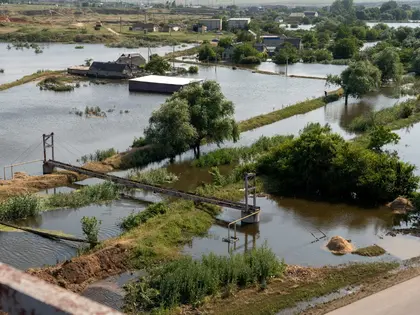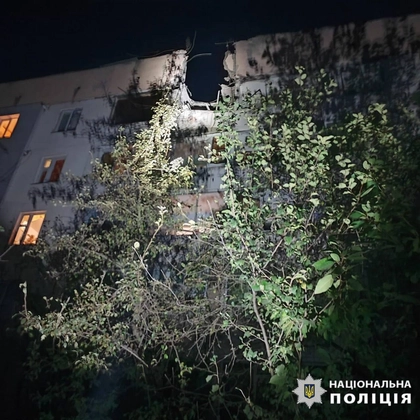Four regions – Dnipropetrovsk, Zaporizhzhia, Kherson, and Mykolaiv – might suffer from problems with water supply due to the destruction of the Kakhovka dam and the spill of the reservoir in the near future, Ihor Syrota, the General Director of Ukrhydroenergo, said in an interview with Radio Liberty.
Syrota stated that the affected areas would face severe water shortages, with occupied Crimea anticipated to suffer for at least a year.
JOIN US ON TELEGRAM
Follow our coverage of the war on the @Kyivpost_official.
“There is no water supply to Crimea because the Kakhovsky storage facility already has a significantly lower water level than required to channel water through the Crimean canal. Therefore, it is highly likely that water will not flow to Crimea for at least a year. Even if Crimea were to be de-occupied, providing them with water immediately would not be feasible,” Syrota explained.
“The Dnipropetrovsk region, Zaporizhzhia, Kherson, and Mykolaiv will all experience water supply problems. We estimate these four regions will be severely affected since we know that once the water level drops below 12.7 meters, the reservoir’s barriers cease to function,” he added.
Considering the critical situation, Syrota mentioned that authorities were actively exploring alternative solutions to ensure the population has access to drinking water as a priority.
“At present, we do not have any problems. As far as we know, Kryvyi Rih has reserves for 1.5-2 months. For cities like Nikopol that are facing flooding, water is being supplied there.”

South Korea Demands 'Immediate Withdrawal' of North Korean Troops in Russia
“The Prime Minister has issued instructions to expedite the drilling of wells in the Kherson, Mykolaiv, and Dnipro regions, primarily near hospitals, to provide people with drinking water,” Sirota explained.
Oleksiy Danilov, the Secretary of the National Security and Defense Council, expressed a similar opinion last week, speaking on TV Marathon on June 7.
“Russia’s actions have rendered it impossible to supply water to Crimea in the foreseeable future,” Danilov stated.
Ukraine cut off water to Crimea back in 2014 after the annexation. There’s been no water there all this time?
After the Russian annexation of Crimea in 2014, Ukrainian authorities reduced the water flow to the peninsula by damming the canal north of the Crimean border. This led to a severe water crisis, resulting in crop failures in the agricultural sector in 2014.
To address this, Crimea connected its own water sources to the North Crimean Canal, aiming to restore irrigation and supply water to the Kerch Peninsula and smaller communities along the east coast. A reservoir was built in 2014 near Novoivanovka to store water from the rivers of Eastern Crimea, and it is connected to the North Crimean Canal.
According to official Russian statistics, the Crimean agricultural industry successfully recovered from the blockage of the North Crimean Canal, with crop yields increasing by 1.5 times from 2013 to 2016.
During the Russian invasion of Ukraine on February 24, 2022, Russian troops took control of the North Crimean Canal, marking the first day of their advance from Crimea.
The Head of the Republic of Crimea, Sergey Aksyonov, instructed local authorities to make the canal ready to receive water. Just two days later, Russian forces used explosives to destroy the previously blocked dam, allowing the water supply to resume.
According to Mykhailo Khorev, Ukraine’s former deputy minister of environmental protection and natural resources, after the dam blast, the situation in Crimea would revert to its state when Ukraine cut off water supply through the North Crimean Canal, but it won’t cause any drinking water shortages.
“Between 2014 and 2022, water did not flow through the North Crimean Canal to Crimea. However, the Russian occupation authorities had undertaken specific reconstructions and utilized local water resources effectively during that time,” Khorev told Kyiv Post.
According to calculations, Crimea has sufficient water resources to meet the population’s drinking water needs.
You can also highlight the text and press Ctrl + Enter






